On November 2, eight IMPACT team members were recognized for their exemplary efforts in leading and supporting numerous IMPACT projects. The awards highlight the contributions and achievements of these outstanding individuals who demonstrate remarkable commitment to IMPACT’s vision and mission. Cerese Albers, Lead Program Executive for the Earth Science Data Systems program at NASA headquarters, presented recipients with the awards and spoke about their impressive contributions to NASA Earth science. Congratulations to these outstanding team members!
Honoring 2023 IMPACT Award Recipients
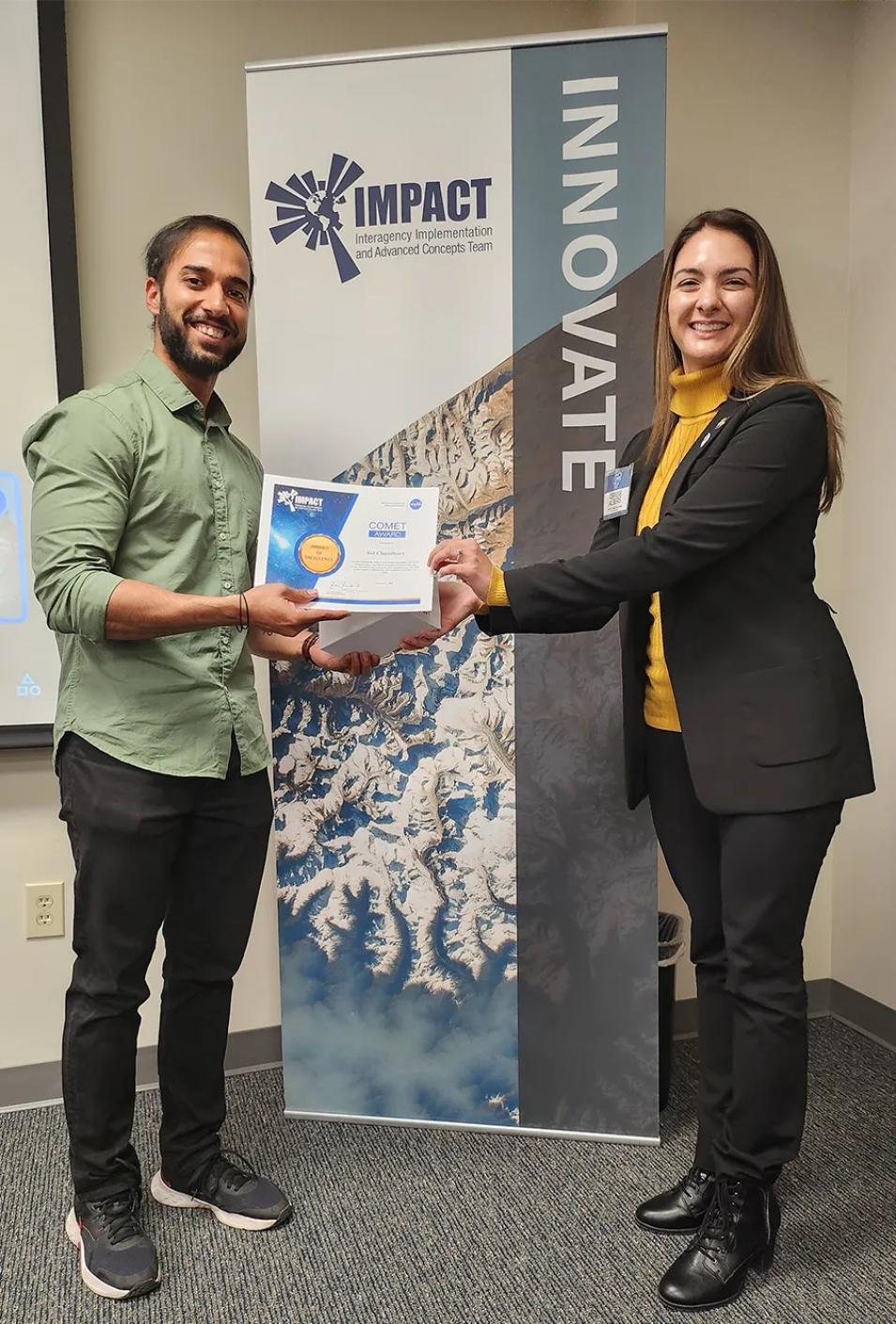
Sid Chaudhary and Cerese Albers
Sid Chaudhary and Slesa Adhikari were presented with the Comet Award, given to a “fast-rising individual who has shown excellence in all of their assigned duties.” Sid works as a member of IMPACT’s machine learning team to support the U.S. Greenhouse Gas Center and VEDA projects. He has proven that his responsiveness and ability to learn quickly to address any task assigned is essential to his teams. Slesa also spearheaded many efforts to develop the U.S. Greenhouse Gas Center and VEDA projects in the past year, consistently demonstrating successful ownership of complex tasks and a drive to get things done both quickly and effectively.
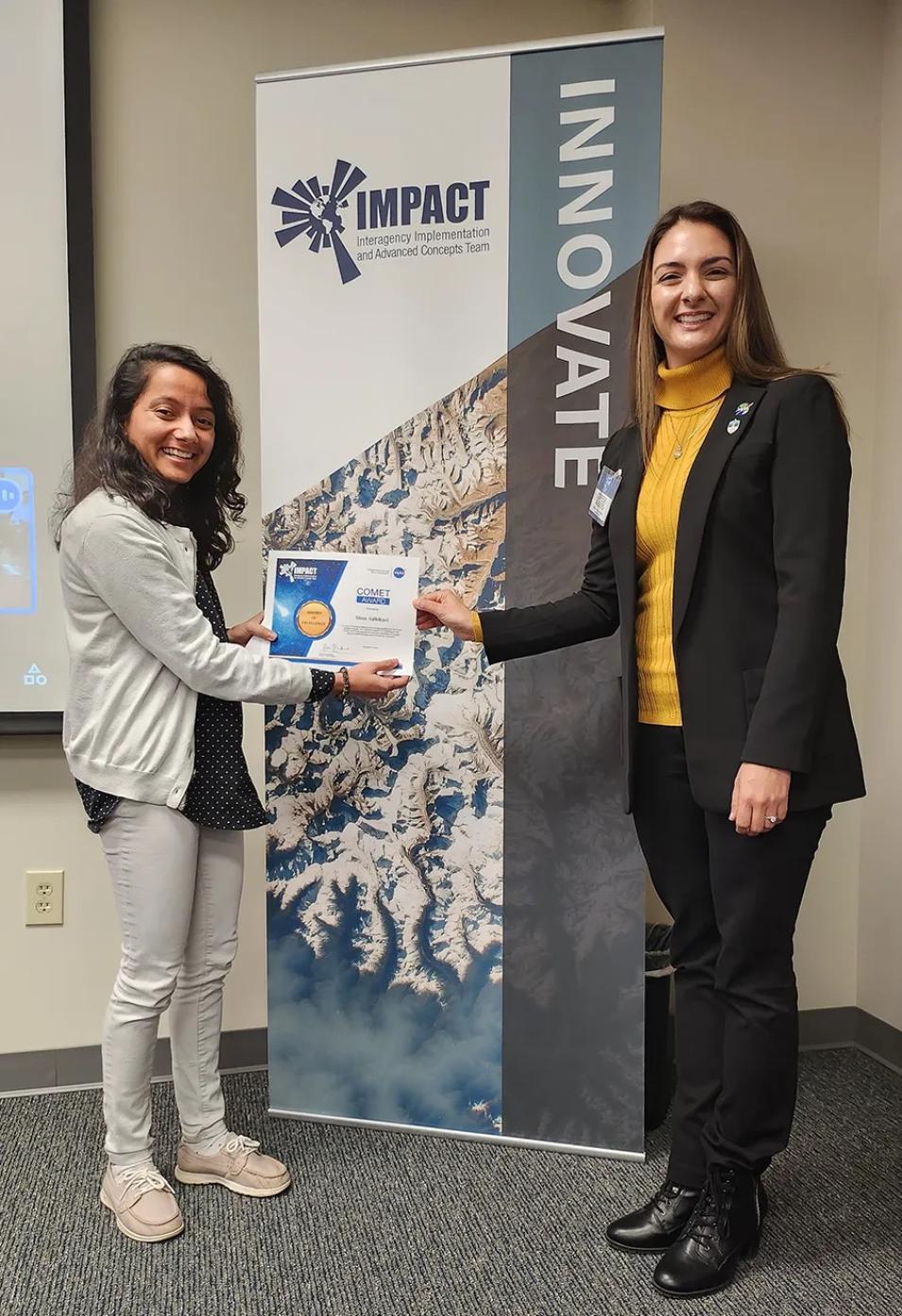
Slesa Adhikari and Cerese Albers
Jeanné le Roux was honored with the Galaxy Award, conferred on an “individual who has stepped back to see projects with a larger view and worked to integrate/connect various aspects” of those projects. Jeanné’s longevity with IMPACT in a variety of roles enables her to help move projects forward more efficiently by leveraging commonalities among work flows and goals. She has encouraged integration among many IMPACT projects including the Satellite Needs Working Group Management Office, VEDA, the Modern Data Governance Framework project, and the U.S. Greenhouse Gas Center.
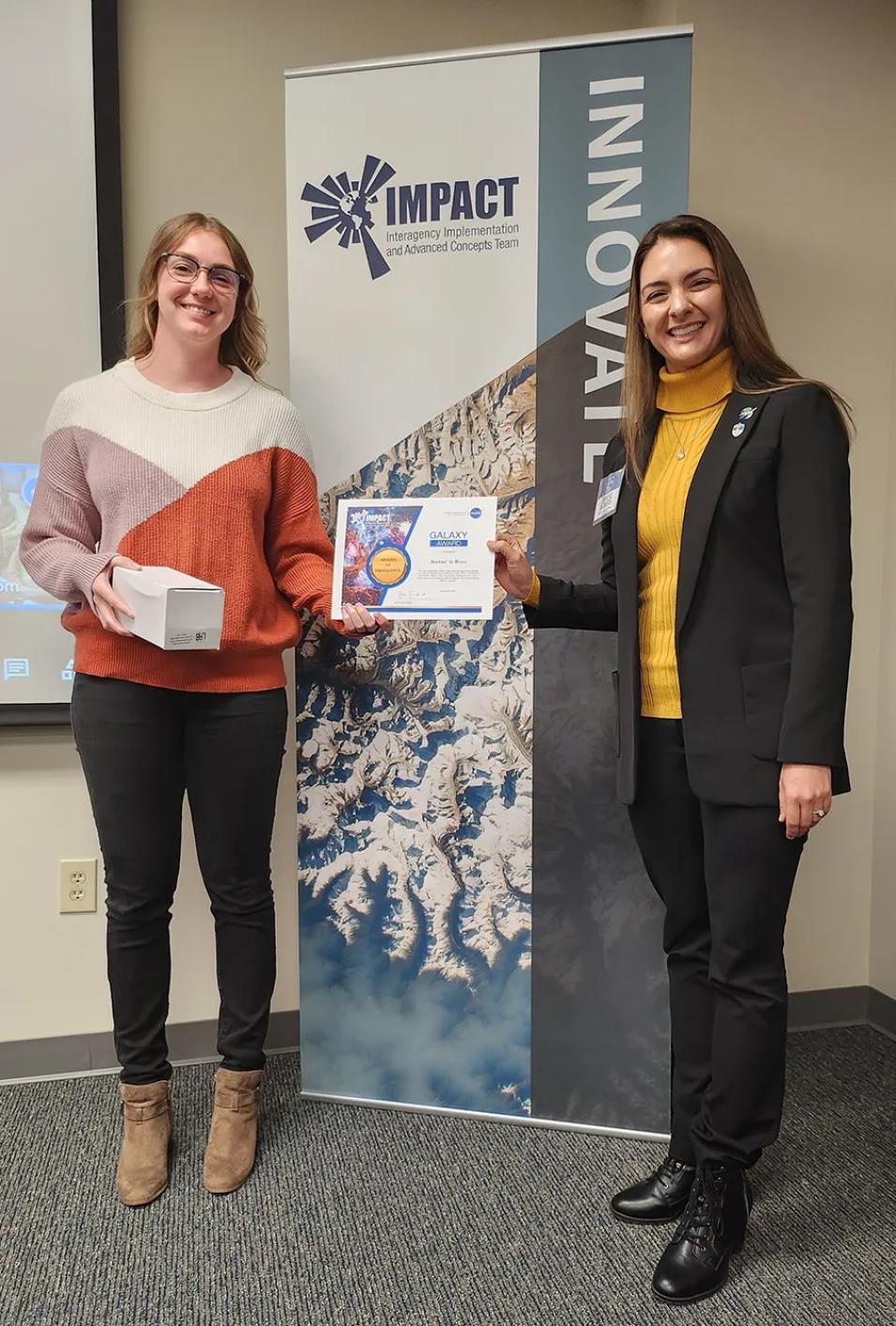
Jeanné le Roux and Cerese Albers
Anish Bhusal and Kumar Ankur received the Shooting Star Award, presented to “someone who excelled at a short term effort.” As a member of IMPACT’s machine learning team, Anish often applies his expertise to several projects at once, pivoting quickly to address pressing needs. Most recently, Anish assisted the Science Discovery Engine and Augmented Search teams. Kumar also is an integral member of IMPACT’s machine learning team and has worked significantly with the AI Foundation Model and Commercial SmallSat Data Acquisition teams. Both Anish and Kumar’s work is vital in supporting IMPACT’s research and development goals.
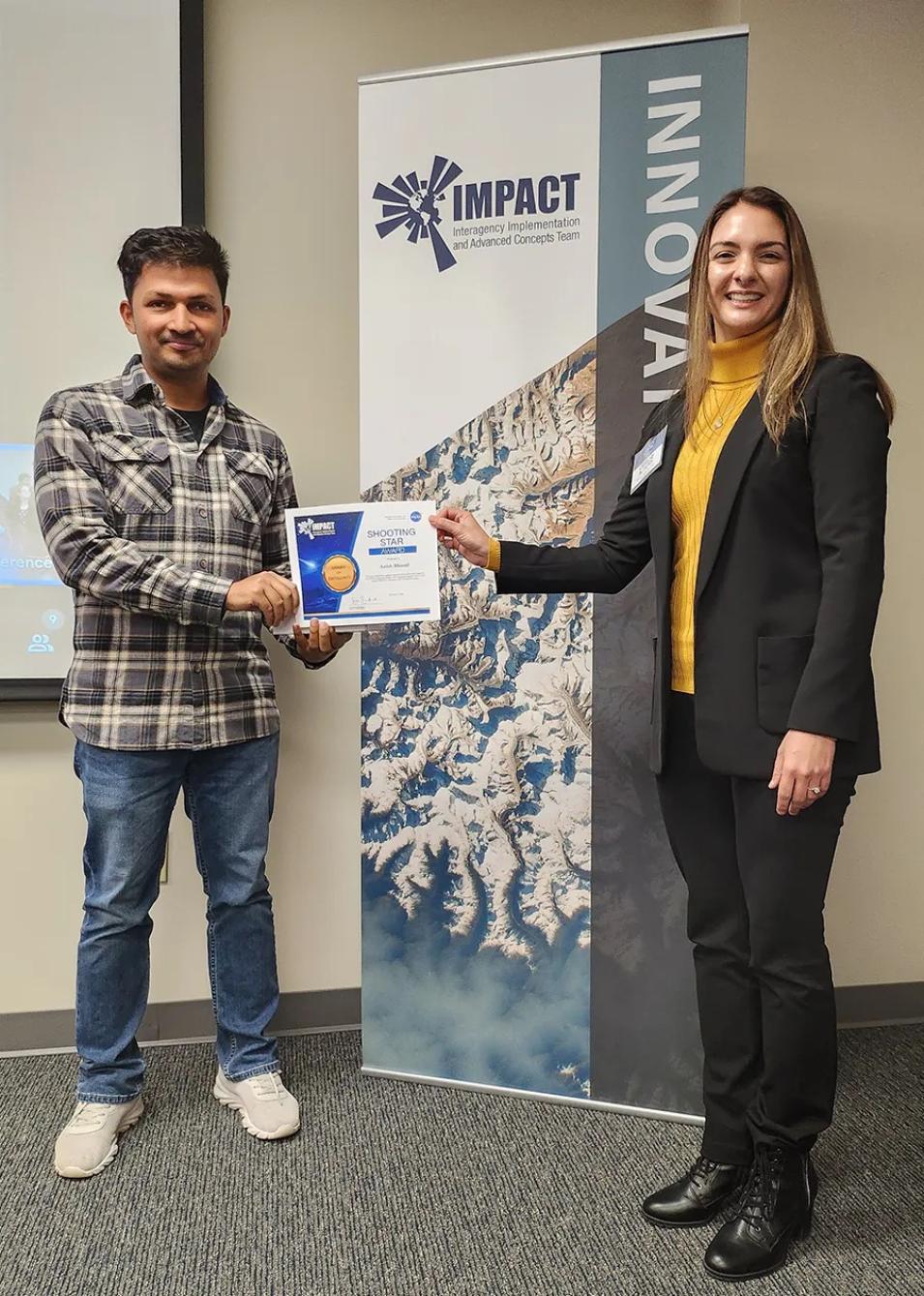
Anish Bhusal and Cerese Albers
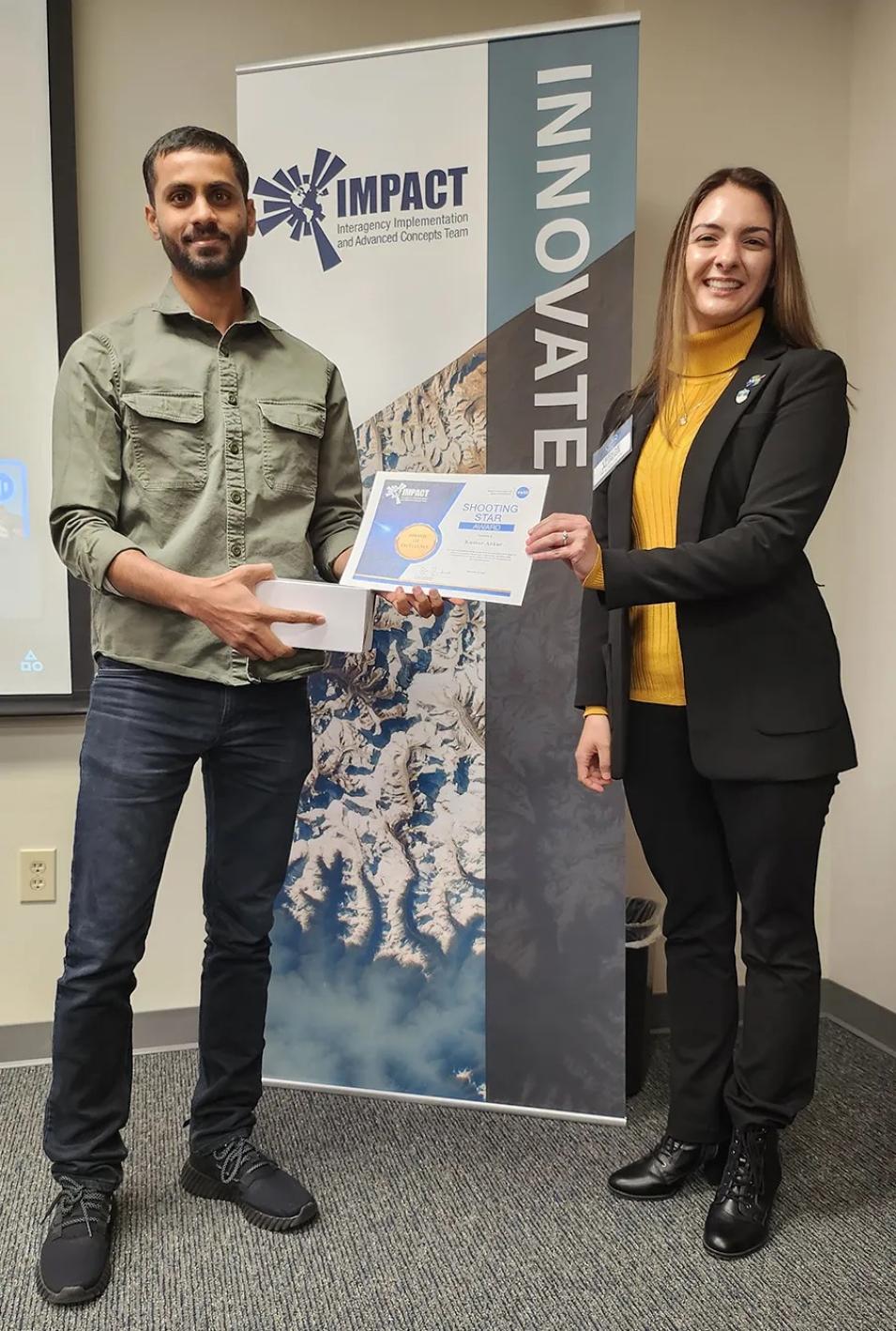
Kumar Ankur and Cerese Albers
Shawn Foley was recognized with the Star Gate Award, awarded to “an individual who went above and beyond to make a new connection or bring in a new resource.” Shawn provided valuable support to the Satellite Needs Working Group (SNWG) Management Office this year by navigating the complex task to renew the Asana security authorization package to support the SNWG Assessment team. His efforts ensured that Asana operated smoothly for dozens of federal agencies that submitted satellite needs surveys.
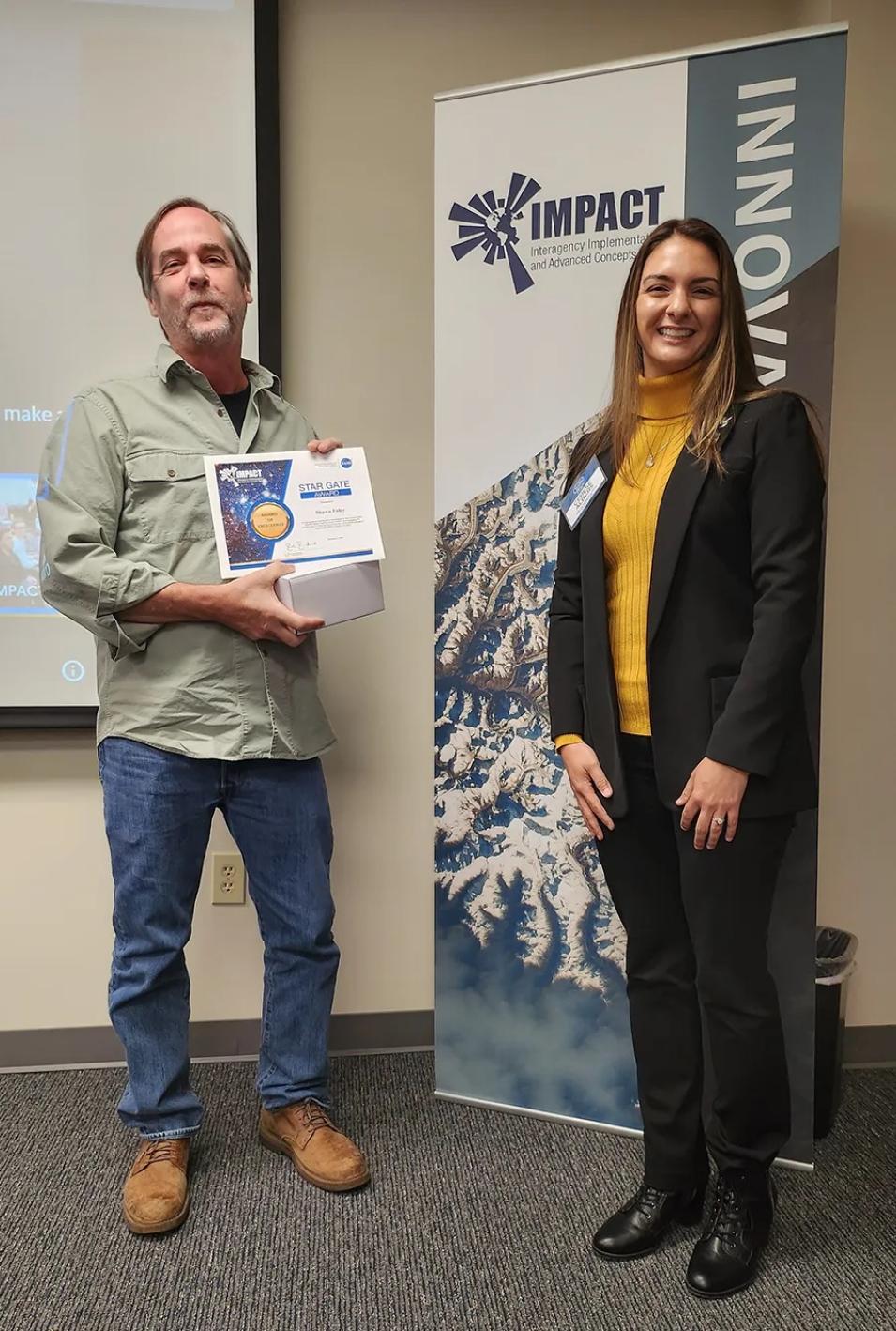
Shawn Foley and Cerese Albers
Kartik Nagaraja was presented with the Escape Velocity Award, given to “an individual who was able to overcome an adverse problem or large obstacle and finish strong.” Kartik demonstrated an outstanding ability to overcome obstacles while working on the user interface for the Science Discovery Engine beta release at the American Geophysical Union 2022 conference. His efforts, along with the Left Right Mind team, were instrumental in the design and implementation of rapid, seamless updates.
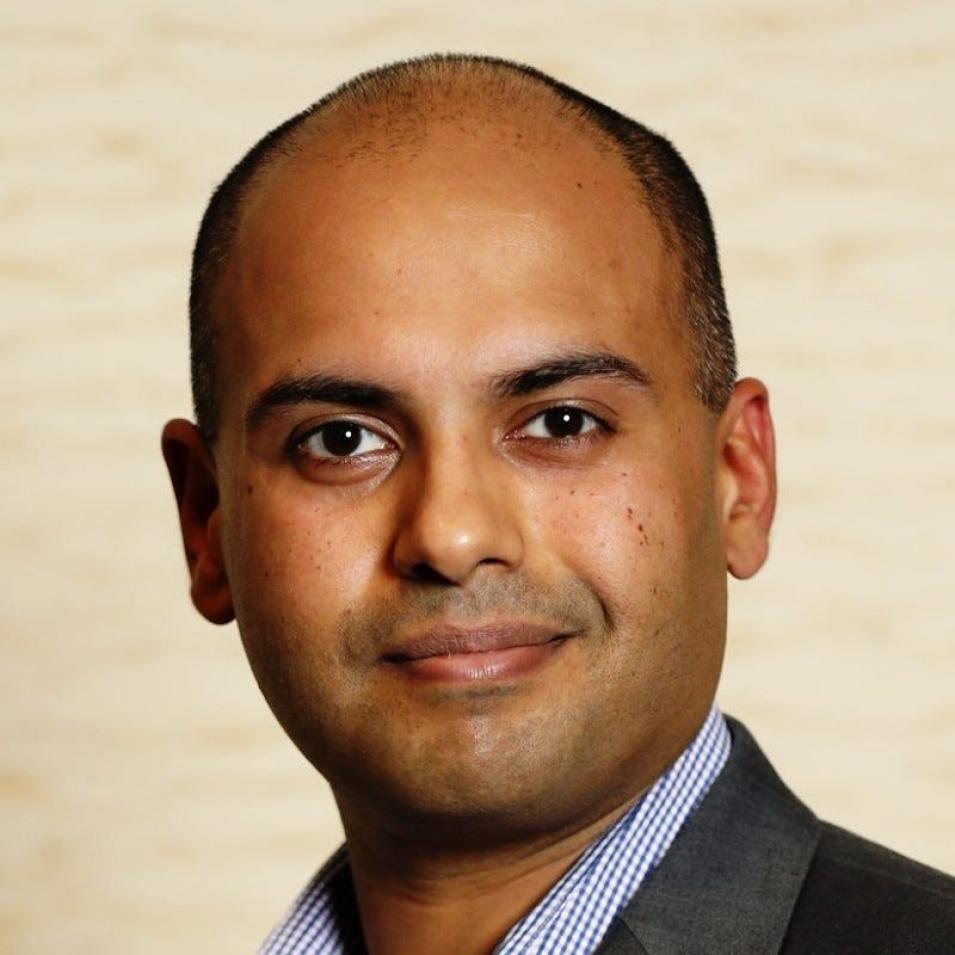
Kartik Nagaraja
Christopher Phillips was honored with the Spark Award, conferred on “an individual demonstrating exemplary creativity and innovation.” Christopher is an essential member of IMPACT’s machine learning team and lends his expertise to several IMPACT projects. He works tirelessly on many aspects of the Geospatial AI Foundation Model project, continuously innovating new solutions to support the validation of downstream tasks for the model.
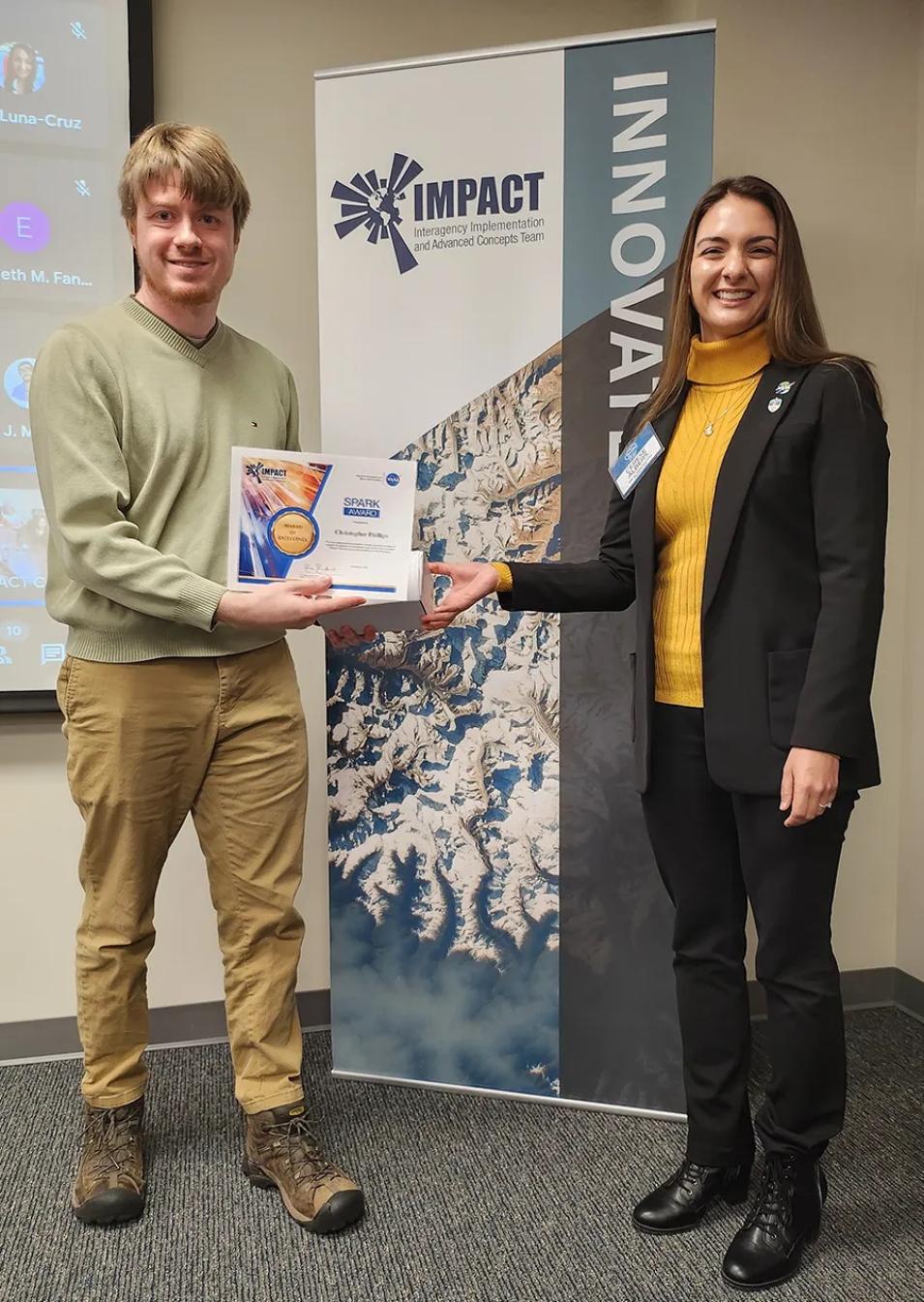
Christopher Phillips and Cerese Albers
Sujit Roy received the Planet Award, presented to “an individual demonstrating gravity,” who quickly and creatively spins up a concept to attract positive attention and resources. Sujit recently led many efforts within the Geospatial AI Foundation Model project. His dedication to developing novel approaches in building the model was crucial in establishing a successful partnership with IBM Research and ensuring the successful launch and open source release of the model.
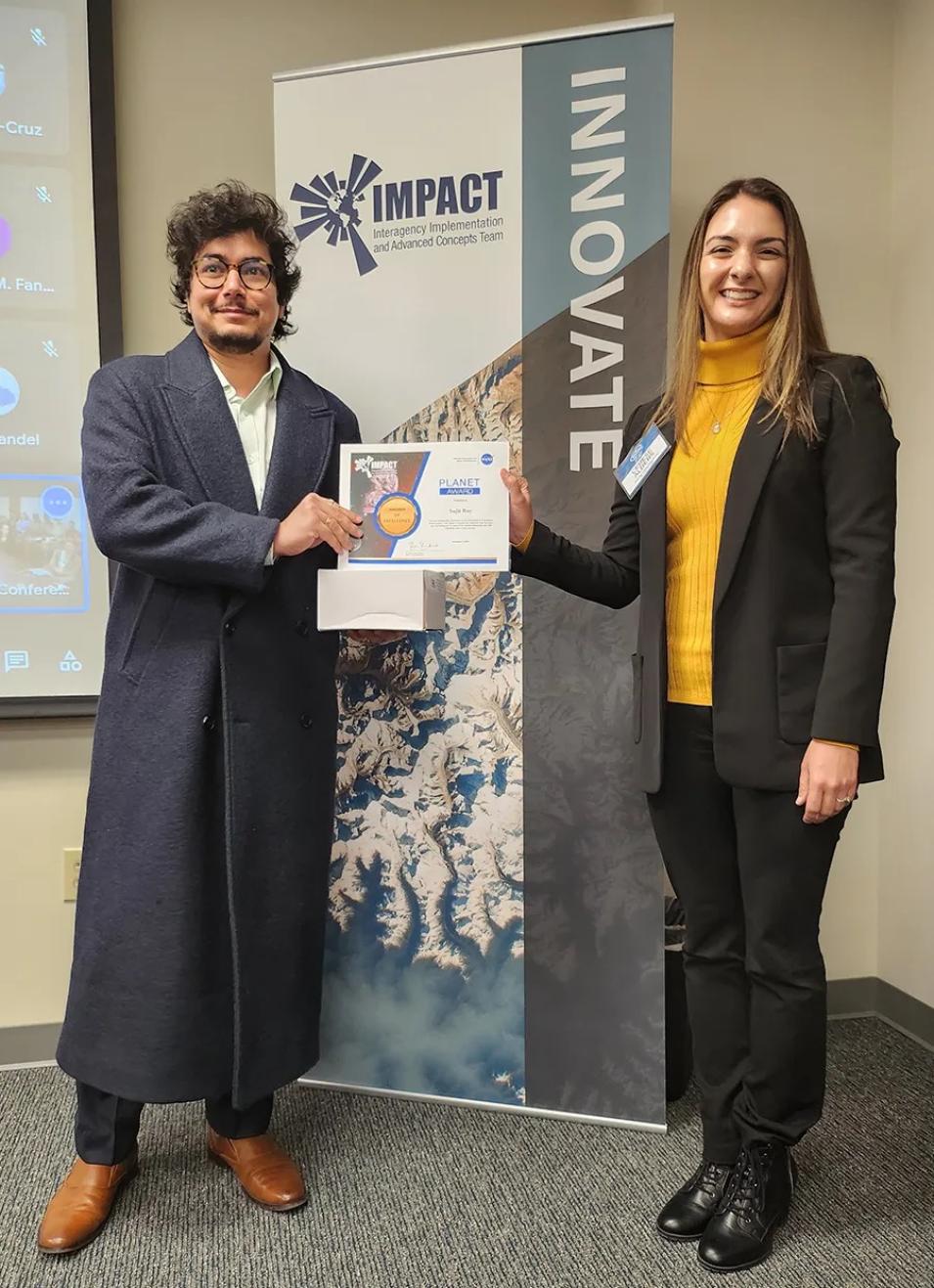
Sujit Roy and Cerese Albers